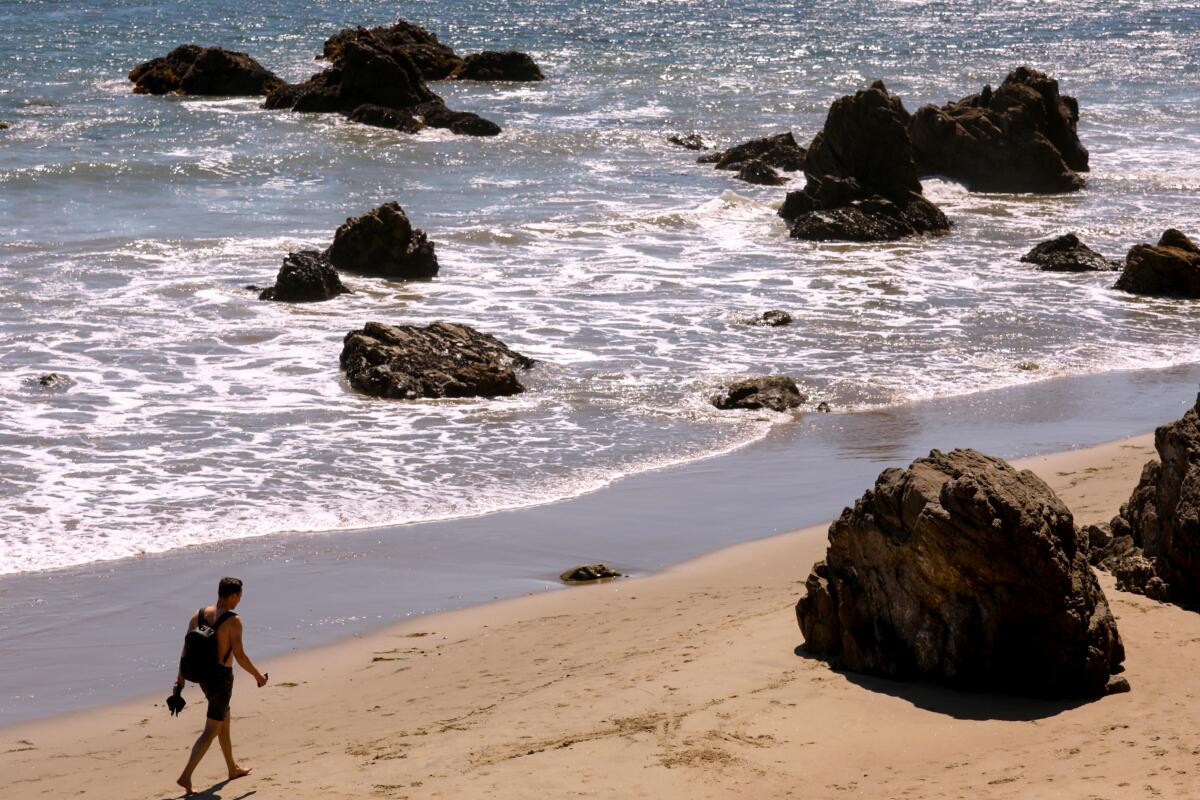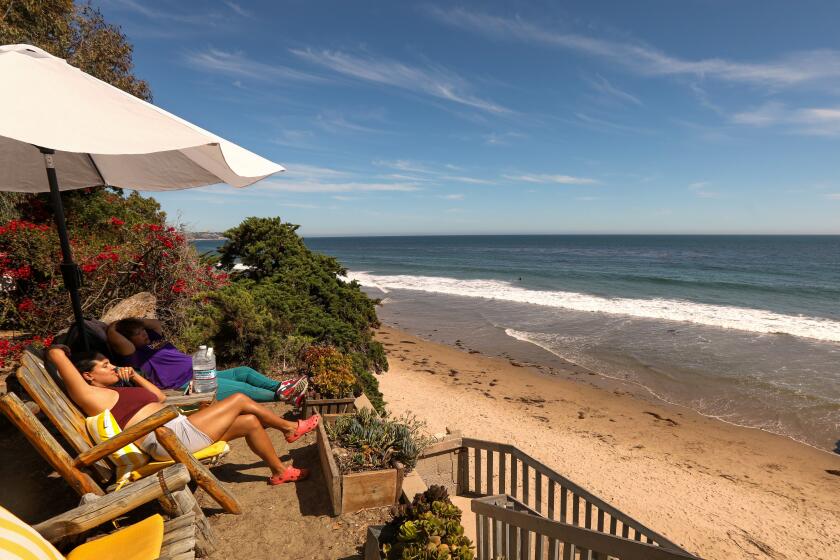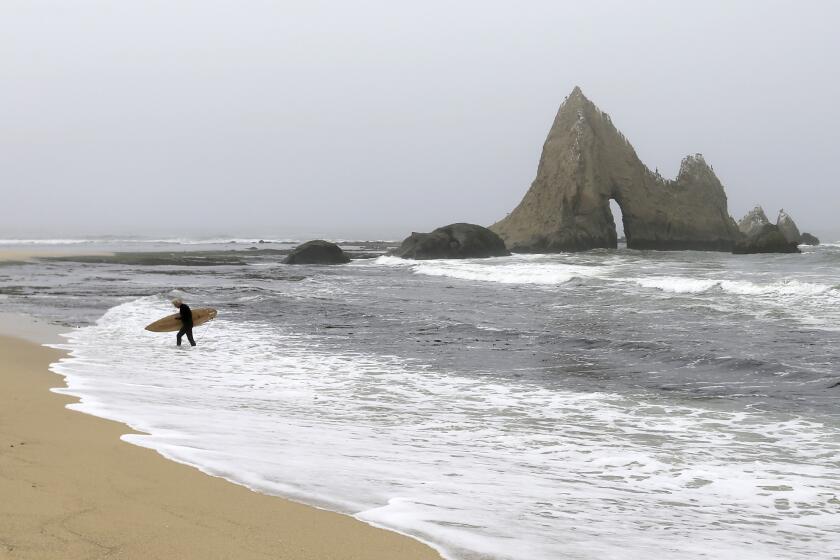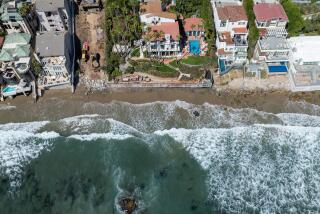Editorial: In Malibu’s sign war, it’s the public that loses

- Share via
Access to public beaches in California is fought over constantly even though it’s protected by state law. Homeowners and communities along stretches of shoreline have sometimes refused to open gates or clear pathways, or ripped down posted directions to beaches.
Now comes a spat in Malibu over three signs pointing the way to Lechuza Beach, a pristine expanse of sand and shore. The Mountains Recreation and Conservation Authority, a local joint powers agency, posted them on Broad Beach Road around Memorial Day. By late June, the city of Malibu had taken them down.
Signage is so crucial to maintaining public access to the coast that it’s required by state law. And though Malibu residents have used all kinds of tricks over the years to discourage the public from finding a beach or parking near it, Malibu city officials insist that’s not the case here. In fact, they say they want access signs to the Lechuza Beach walkway, which is difficult to find, so beachgoers don’t stumble onto private property.
Malibu beaches lined with mansions may seem private, but they’re not. Here’s how to enjoy hidden spots with wonky access rules.
So why cut down these three MRCA signs? A lack of proper permits, it seems. Malibu officials claim the MRCA needs an “encroachment permit” from the city to put up signs on a city road. They also said the original signs were unsafely mounted on posts of solid steel and not designed to break away when struck by a vehicle — as required by state and federal law. Malibu officials said they would help the agency fill out the permit and expedite it, and told the agency where to retrieve its errant signs.
The MRCA claims it doesn’t need a city permit to put up the signs because it’s carrying out the requirements of a state law. “State law trumps local laws,” says Elena Eger, the MRCA coastal projects special counsel. Malibu interim city attorney Trevor Rusin disagrees, arguing that anyone who wants to put up a sign on a city right-of-way — whether it’s a state or federal agency — has to get a permit.
Now that the Coastal Commission is suing Vinod Khosla to allow regular public access to the beach, maybe that will end this 10-year fight.
Here’s the bottom line: Everyone says they want the signs. The MRCA is fine with changing the composition of the posts. The city says it could re-post the signs in a matter of days.
But instead of working together we have a legal standoff between the MRCA and Malibu City Hall. Ideally the city shouldn’t have taken the signs down before its lawyers could talk to the MRCA lawyers and work out a resolution. But it did. Now there are no signs directing visitors to Lechuza Beach and it’s the public who suffers.
How about this for a solution? MRCA gives the signs back to Malibu, and city workers mount them on safer posts as soon as possible and put them back where they were on Broad Beach Road. The Malibu interim city attorney says the city can’t post signs it doesn’t own, and besides there are liability issues. But no matter who files the permit for the signs, if someone drives into one and gets hurt, everyone connected to the city and the signs will probably get sued.
Let’s just get the signs back up so the people who don’t drive into them can happily find their way to Lechuza Beach.
More to Read
A cure for the common opinion
Get thought-provoking perspectives with our weekly newsletter.
You may occasionally receive promotional content from the Los Angeles Times.












